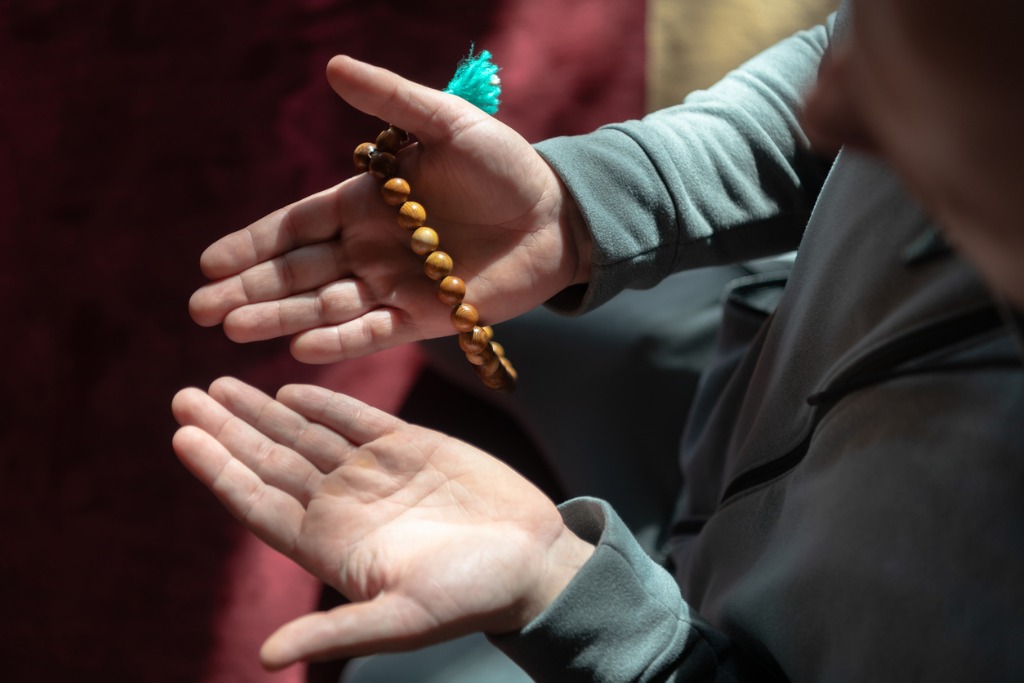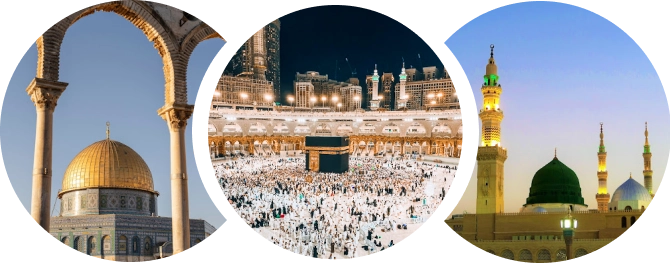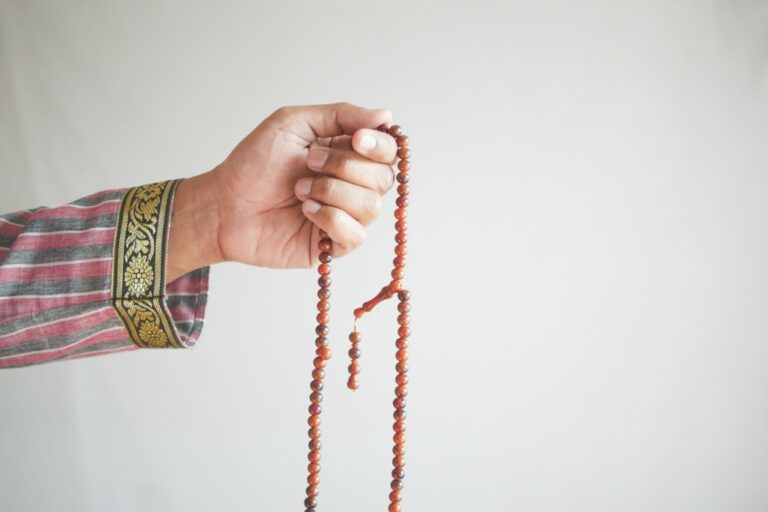What is the Meaning of “Rabbana Atina Fid Dunya Hasanah” Dua?
Are you curious about the significance of the “Rabbana Atina Fid Dunya Hasanah” Dua in Islam? This powerful supplication, found in Surah Baqarah of the Quran, is a profound plea for blessings and protection.
In this article, we will delve into its meaning, pronunciation, and timing of recitation. Stick around to discover how reciting this Dua can enrich your spiritual practice and bring divine blessings into your daily life InshAllah!
Explanation of “Rabbana Atina Fid Dunya Hasanah” Dua


The “Rabbana Atina Fid Dunya Hasanah” is a supplication from the Holy Quran, specifically Surah Al-Baqarah, verse 201st, in which we ask Allah SWT to grant us goodness and prosperity in this world and the Hereafter.
Meaning and translation in English
رَبَّنَآ ءَاتِنَا فِى ٱلدُّنْيَا حَسَنَةًۭ وَفِى ٱلْـَٔاخِرَةِ حَسَنَةًۭ وَقِنَا عَذَابَ ٱلنَّارِ
Rabbana Atina Fid Dunya hasana wafil akhirati hasana waqina athaban naar.
“Our Lord! Grant us the good of this world and the Hereafter, and protect us from the torment of the Fire.” 2:201
It is a heartfelt invocation made by believers to seek goodness in life and beyond while being shielded from harsh consequences.
It represents a plea for life’s balance – prosperity now and eternal happiness later. This powerful supplication resonates with a strong appeal to Allah SWT for mercy and forgiveness, effectively making it a must-recite for those seeking beneficial guidance on their spiritual journey.
How to pronounce it


Understanding how to pronounce “Rabbana Atina Fid Dunya Hasana” correctly is essential for accurate recitation. Because it is an Arabic phrase, some sounds may be unfamiliar to non-Arabic speakers. To help you pronounce it correctly, follow these steps:
Look at the Transliteration of this Dua, which is “Rabbana Atina Fid Dunya Hasanah Wa Fil Akhirati Hasanah Waqina Athaban Naar”.
There is a variation of this Dua in which it is recited in a slightly different manner: “Rabbana Atina Fid Dunya Hasanatan Wafil Akhirati Hasanatan Waqina Athaban Naar.”
So, don’t get confused if you see someone reciting this Dua this way.
Now, once you have recited the Dua with transliteration, watch the video we have attached below; by doing this, you will be able to correct your mistakes in pronunciation.
Significance of this Incredible Dua in the Quran
This Verse 201 of Surah Al-Baqarah represents the tenacity of Islam’s teachings on finding balance in life.
Allah SWT provided us with the perfect method for making Dua. In this Dua, you ask Allah SWT for worldly and eternal success, as well as protection from Hellfire.
Ahead of mentioning this Dua, Allah SWT described the attitude of a person who only asks Allah SWT for worldly gains, but this person would face severe consequences:
There are some who say, “Our Lord! Grant us ˹Your bounties˺ in this world,” but they will have no share in the Hereafter. 2:200
Then, immediately following this, Allah SWT revealed the perfect and balanced formula for this Dua:
Yet there are others who say, “Our Lord! Grant us the good of this world and the Hereafter, and protect us from the torment of the Fire.”
By reciting this Dua, we affirm our trust in Allah SWT while recognizing the importance of pursuing goodness in all aspects of life.
It calls for blessings in all areas, from health to wealth, knowledge to success.
Furthermore, it creates a holistic approach to worship by including requests for worldly matters and concerns about the Hereafter – demonstrating how Islamic teachings interconnect life here and beyond.
When to Recite This Dua


Many occasions and times are fitting to recite this remarkable Dua. Following are some specifically advantageous moments.
- After performing the Fardh prayers.
- After reciting Durood e Ibrahimi in the last Tashahud.
- During the last third of the night, Allah SWT is said to descend to the lowest heaven and listen to supplications.
- Between Adhan and Iqama, as it is considered a blessed time for making supplications.
- While in Sajdah during prayer, as it is considered a posture of complete humility and surrender to Allah SWT.
- On Fridays (Jumu’ah), as Prophet Muhammad PBUH considered it to be the best day for the sun to rise.
- Tawaf around the Kaaba in Hajj or Umrah, as this act is considered highly prestigious and spiritual.
Benefits of Reciting It


By reciting this Dua, one aligns themselves with the Prophet’s (PBUH) teachings and practices. The Dua covers many aspects of life, such as success, prosperity, happiness, and good health.
It expresses a sincere desire to be saved from the consequences of sins and a request for protection from Hellfire. It also expresses a desire for eternal happiness, rewards, and closeness to Allah SWT.
Reciting this Dua brings people closer to achieving happiness in all aspects of this life and the hereafter.
Conclusion
In conclusion, “Rabbana Atina Fid Dunya Hasana” Dua is a powerful supplication that seeks blessings in this world as well as the next. It addresses all aspects of life and requests protection from the Fire’s punishment.
Learning and reciting this Dua can have a massive impact on our lives and strengthen our relationship with Allah SWT. Let us strive to incorporate it into our daily lives and to seek goodness in all aspects of our lives.
FAQs
What does “Rabbana Atina Fid Dunya Hasanah” mean?
“Rabbana Atina Fid Dunya Hasanah Wa Fil Akhirati Hasanah Waqina Athaban Naar” is a transliteration of a Dua in which we ask Allah SWT for good in this world and good in the Hereafter, as well as protection from Hellfire punishment.
How can saying this Dua benefit us?
Reciting this Dua allows people to follow the Sunnah established by Prophet Muhammad PBUH. It seeks beneficent knowledge, righteous relationships, business or career success, fulfillment, and pious children to enter paradise InshAllah.
Why do we ask for ‘goodness’ in this life and the next when making these Duas?
Seeking ‘goodness’ entails praying for rewarding experiences such as a righteous spouse, comfortable transportation such as a peaceful car ride home after work, or a fulfilling job – all within the framework of halal provision. Importantly, it demonstrates our love for Allah SWT and our desire to meet Him by abstaining from sins.
Is recitation only limited to Arabic?
No! The Dua can be recited not just in Arabic but also in English. Translations exist, but you should know that if you recite this Dua during Salah before taslim, you must recite it in Arabic.
Do we need special occasions to recite this Dua?
No, you can recite it whenever you want to, but it would be better if you recite it after each prayer, as it would become a part of your routine.
Can this Dua help us avoid future mistakes?
Absolutely! It encourages seeking assistance from the Most Merciful Lord against consequences of wrongdoing, including punishment in the grave.
What is the meaning of the supplication: “Our Lord, we have given us good in this world”?
Are you interested in knowing the importance of the supplication “Our Lord, We have given goodness in this world” in Islam? This powerful supplication found in Surat Al-Baqarah of the Qur’an is a profound supplication for blessing and protection.
In this article, we will discuss its meaning, pronunciation, and timing of its recitation. Follow along to discover how reciting this supplication can enrich your spiritual practice and bring divine blessings into your daily life, God willing!
Explanation of the supplication: Our Lord, we have given goodness in this world

“Our Lord, give us good in this world” is a supplication from the Holy Qur’an, specifically Surat Al-Baqarah, verse 201. We ask God Almighty to grant us goodness and prosperity in this world and the hereafter.
Meaning and translation in English
We have given us good in this world, and good in the Hereafter, and protect us from the torment of the Fire.
Lord, we have come to you with a good world, and a good afterlife has come to us, and we have been protected from the snakes of fire.
“Our Lord! Give us good in this world and the hereafter and protect us from the torment of the Fire.” 2:201
It is a sincere supplication from the heart made by believers to seek goodness in life and beyond while being protected from dire consequences.
It represents a plea for life balance - prosperity now and eternal happiness later. This powerful supplication resonates with a powerful appeal to God Almighty for mercy and forgiveness, making it a must-read for those looking for helpful guidance in their spiritual journey.
How to pronounce it


Understanding how to pronounce “Rabbana Atina Fid Dunya Hasana” correctly is essential for accurate recitation. Because it is an Arabic phrase, some of the sounds may be unfamiliar to non-Arabic speakers. To help you pronounce it correctly, follow these steps:
Look at the translation of this supplication, which is: “Our Lord, give us good in this world and good in the Hereafter, and protect us from the pits of fire.”
There is a variation of this supplication in which it is recited in a slightly different way: “Our Lord, We have given you good deeds in this world, and grant us good deeds in the hereafter, and protect us from the dunes of fire.”
Therefore, do not be confused if you see someone reciting this supplication in this way.
Now, after you have read the supplication in transliteration, watch the video attached below; Thus, you will be able to correct your errors in pronunciation.
https://www.youtube.com/shorts/Kj94ynn7YbwThe importance of this amazing supplication in the Qur’an
This verse 201 of Surah Al-Baqarah represents the coherence of the teachings of Islam in finding balance in life.
God Almighty has provided us with the perfect way to make supplications. In this supplication, you ask God Almighty for success in this world and the hereafter, and salvation from Hell.
Before mentioning this supplication, God Almighty described the situation of a person who only asks God Almighty for worldly gains, but this person will face dire consequences:
And there are those who say, “Our Lord!” He granted us “please” in this world, but they have no share in the afterlife. 2:200
Then immediately after that, God Almighty revealed the perfect and balanced formula for this supplication:
There are others who say, “Our Lord, give us goodness in this world and the hereafter, and protect us from the torment of the Fire.”
By reading this supplication, we affirm our trust in God Almighty while realizing the importance of striving for goodness in all aspects of life.
It calls for blessings in all areas, from health to wealth, from knowledge to success.
Furthermore, it creates a holistic approach to worship by including requests for worldly matters and concerns for the afterlife – demonstrating how Islamic teachings connect life here and beyond.
When should this supplication be recited?


Many occasions and times are appropriate to recite this wonderful supplication. Here are some specifically useful moments.
- After performing the obligatory prayer.
- After reading Durood Al-Ibrahimi in the last tashahhud.
- In the last third of the night, God Almighty is said to descend to the lowest heaven and listen to supplications.
- Between the call to prayer and the iqamah is a blessed time for supplication.
- While prostrating during prayer, it is considered a position of complete humility and submission to God Almighty.
- Friday (Friday) as the Prophet Muhammad, may God bless him and grant him peace, considered it one of the best days for sunrise.
- Circumambulating around the Kaaba during Hajj or Umrah, as this action is considered a high status and spiritual act.
Benefits of reading it


By reciting this supplication, one aligns with the teachings and practices of the Prophet, may God bless him and grant him peace. The supplication covers many aspects of life, such as success, prosperity, happiness and good health.
It expresses a sincere desire to be saved from the consequences of sins and a request for protection from Hell. It also expresses the desire for eternal happiness, reward, and closeness to God Almighty.
Reciting this supplication brings a person closer to achieving happiness in all aspects of this life and the hereafter.
Conclusion
In conclusion, the supplication “Our Lord, we have given goodness in this world” is a powerful supplication that seeks to obtain blessing in this world and the hereafter. It deals with all aspects of life and seeks protection from the torment of hellfire.
Learning and reciting this supplication can have a tremendous impact on our lives and strengthen our relationship with God Almighty. Let us strive to include it in our daily lives and seek goodness in all aspects of our lives.
FAQ
What does the phrase “Our Lord brought us a good world” mean?
“Our Lord, give us good in this world and good in the hereafter, and protect us from the pits of fire” is a supplication in which we ask God Almighty for good in this world and good in the afterlife, as well as protection from the torment of Hell.
How can this supplication benefit us?
Reciting this supplication allows people to follow the Sunnah established by the Prophet Muhammad, may God bless him and grant him peace. He seeks useful knowledge, good relationships, success in work or career, loyalty, and righteous children to enter Paradise, God willing.
Why do we ask for goodness in this world and the hereafter when performing these supplications?
Seeking “the good” entails praying for rewarding experiences such as a good spouse, convenient transportation such as a peaceful car ride home after work, or a fulfilling job—all within the context of providing halal. Most importantly, it indicates our love for God Almighty and our desire to meet Him by refraining from sins.
Is recitation limited to the Arabic language only?
no! The supplication can be recited not only in Arabic but also in English. Translations exist, but you should know that if you read this supplication during prayer before the salutation, you must read it in Arabic.
Do we need special occasions to read this supplication?
No, you can read it whenever you want, but it is better to read it after every prayer, because it will become part of your routine.
Can this supplication help us avoid future mistakes?
certainly! It encourages seeking the help of the Most Merciful God against the consequences of injustice, including the torment of the grave.







